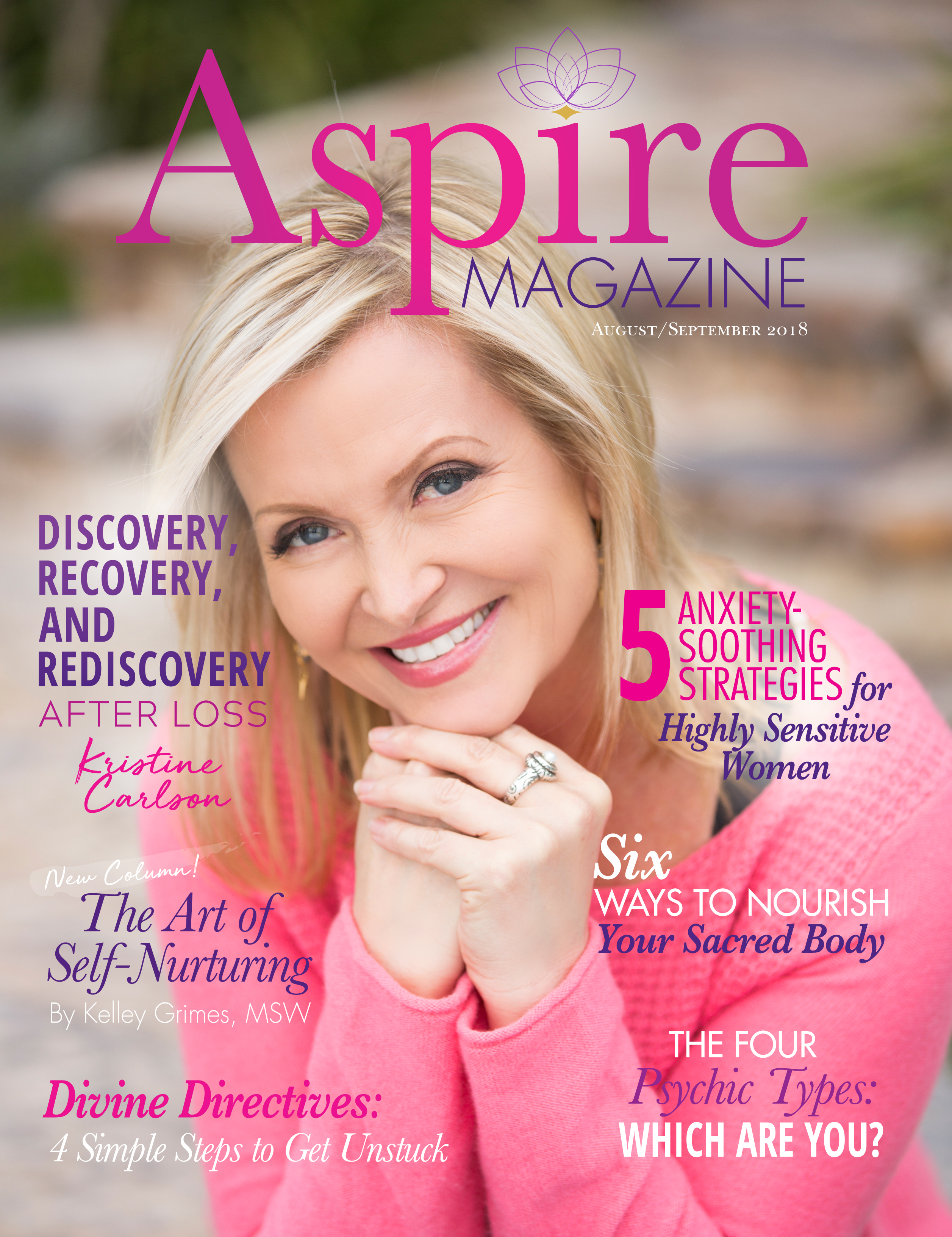
When Richard my beloved life partner of twenty-five years died suddenly from a pulmonary embolism on his way to New York to promote his latest book, I quickly went from being the envied wife of the famous author to the Don’t Sweat the Small Stuff book series to a woman who was pitied as a young widow.
In the blink of an eye, I changed costumes from devoted wife and strong dutiful mother to single mother, bereft and besieged by self-doubt and fears that I might not be able to manage my responsibilities on my own.
Maybe you can relate intimately to my abrupt transformation. Whoever and whatever you thought you were before, you are now something else. This is the point in your journey when you must confront a loss of identity that has come through an ego annihilation. You have experienced the death of a life—yours has changed so much that it feels like parts of you have died, leaving you with uncertainty about who you are. Yes, it’s a radical change that sets so many fine adjustments in motion. Like an earthquake, the ground beneath your feet has shifted, and it feels different now. How could it not? You are birthing a new identity; moreover, you are feeling exposed and vulnerable. This time period comes with a host of big questions, including how to be with other people, in all the ordinary social ways, and how to proceed forward in this new life.
These are not only issues you struggle with in your own mind while you wrestle with this uneasy feeling of having your identity in crisis. They are issues you will face when you are among your people, even those who are supportive, because of all the ways your community, friends, and family see and respond to your new identity, too.
I was a woman in my forties with a family, and most of my closest friends were also married with families. This was our community, and we were fully immersed in a world where it was normal to be in a partnered relationship. And—let’s face it—whether you are divorced or widowed in this family-oriented culture, there is a real (if usually unspoken) stigma about being single. Of course, none of them blamed me for being widowed, and now single, but I couldn’t help feeling like it was harder for us to relate to each other when their whole concept of me had been designed by my marriage and family life. They needed some time to adjust, too. In turn, their view of me contributed greatly to my own feelings of who I was in the world.
Suddenly, an awkwardness exists, as everyone adjusts to this new identity you have until you make your way into this new life. Some will embrace it with you, while others won’t be able to. If you have lost your partner, your new single status, to some, may represent a threat—and to others, may be a reminder of something that they just can’t live with on a day-to-day basis. They are very aware that this could, after all, happen to them. As is often the case, your true friends will be revealed; they come to your side and stay steady for the long haul. Your angels show up.
Everyone on the journey from heartbreak to wholeness faces this same challenge, and everyone questions: Who am I? The poignant nuances of this question arise from the depths of your own particular heartbreak.
Who am I alone?
Who am I without my beloved?
Who am I as a single person?
Who am I as a solo parent?
Who am I without the body I used to know, when I was healthy?
Who am I without the respect that came with my job?
Who am I without the financial standing I had?
Who am I now that I’m no longer young?
Who am I since I took refuge in a country that isn’t my own?
Who am I after the traumatic event that changed me?
Who am I now . . . after all of this has happened?
Our suffering leads us into deeper corridors of ourselves than we could have imagined before. What we discover in heartbreak often extends beyond the relationship—or the home or the job or the way of life—that has now irrevocably changed.
[Tweet “We discover that there are aspects of ourselves that we have left behind in order to live the life we have lived. @KristineCarlson”]
Let’s go on a reconnaissance mission together to find and retrieve the real you—the essential you that existed, that has always been present even if subdued, and that always will be, before, during, and after everything that happens in the epic adventure of your life.
© 2018. Kristine Carlson. An excerpt from the book, From Heartbreak to Wholeness: The Hero’s Journey to Joy. Reprinted with permission. St. Martin’s Press www.KristineCarlson.com
Cover photo credit: Alyssa Martens http://www.alyssamartensphoto.com


